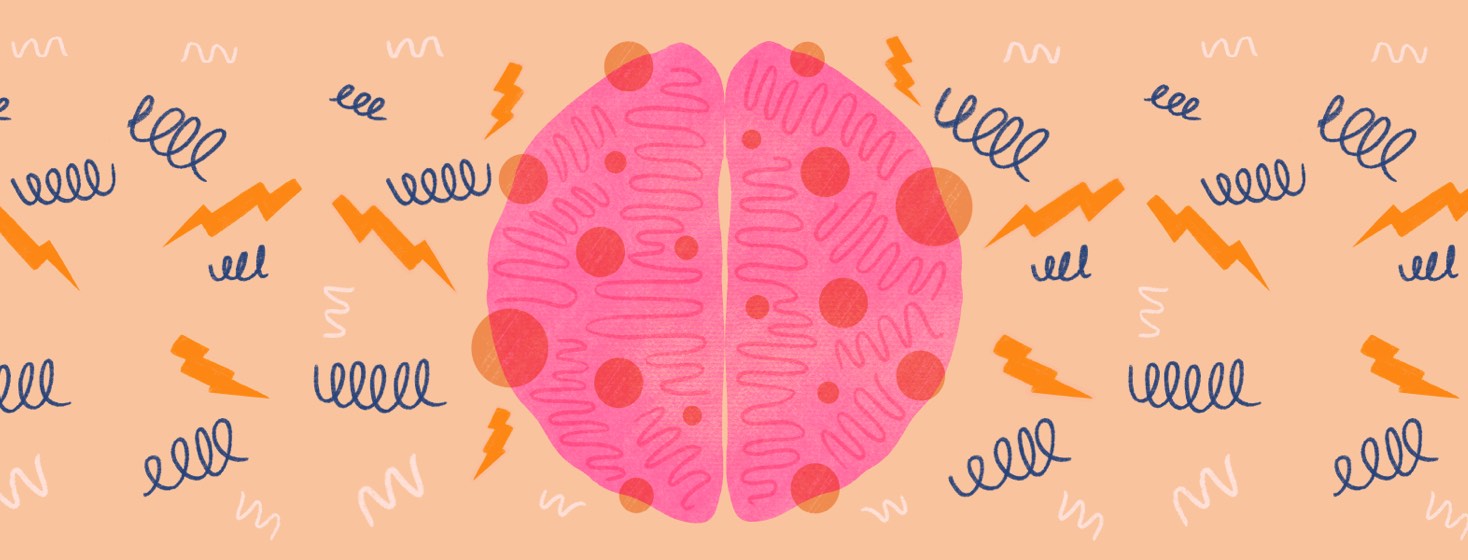Cold and Flu: Understanding Common Seizure Triggers
Reviewed by: HU Medical Review Board | Last reviewed: September 2022 | Last updated: February 2026
Seizures are caused by a sudden, brief change in the brain's electrical activity. People with epilepsy can have different seizure triggers. Some common triggers are:1
- Stress
- Lack of sleep
- Skipping meals
- Flashing lights
- Alcohol
With cold and flu season an annual event, you may be wondering if these common illnesses can trigger a seizure. Below, we explore the connection between colds, flu, and seizures. Understanding the links can help you manage your epilepsy at any time of the year.1
What causes colds and flu?
Colds and flu are caused by viruses, which are tiny infectious particles. These viruses can enter your body through your nose, mouth, or eyes. Once inside, they multiply and cause symptoms like:2
- Runny nose
- Congestion
- Coughing
- Fever
In some people, these viruses can also cause seizures.1
How colds or flu could cause a seizure
Inflammation
The underlying reason why illnesses like colds and flu have the potential to trigger seizures is inflammation. When you get sick, your body reacts with a stress response. The stress response includes the release of chemicals called cytokines.3,4
Cytokines help fight off infection by attacking viruses and bacteria. But they can also cause inflammation, which can lead to a seizure. This is more likely to happen in people with epilepsy or a history of seizures.3,4
Fever
When you get sick, your body often responds by increasing its temperature. Fever is a common symptom of both colds and flu. Fever can also trigger seizures in some people with epilepsy, especially children. This is more likely if the fever is high (above 102 degrees Fahrenheit or 39 degrees Celsius). If your child has a history of seizures, monitor their temperature closely during cold and flu season.1,5
Dehydration
Colds and flu can also lead to dehydration, a low amount of water and other fluids in your body. When you are sick, you may not feel like eating or drinking. Vomiting and diarrhea can also lead to dehydration. And dehydration can trigger seizures.1,6
Be sure to drink plenty of fluids, even if you don't feel like it. This will help prevent dehydration and the seizures that can come with it.1
Lack of sleep
We all have had sleepless nights when we are ill with a cold or the flu. Colds and flu can cause congestion, coughing, and other symptoms that make it hard to get a good night's sleep. But lack of sleep can also trigger seizures. If you are sick, get as much rest as possible. This will help your body fight off the infection and help prevent seizures.1
Cold medicine
You might think of grabbing an over-the-counter (OTC) cold medicine to help you feel better when you get sick. But some of these drugs can trigger seizures. Some might even trigger a seizure for the first time. These include:1,7,8
- Diphenhydramine (Benadryl®): This antihistamine is a common OTC drug used for colds, allergic reactions, and sleep. But antihistamines are the most common cause of drug-induced seizures.
- Pseudoephedrine (Sudafed®) and phenylephrine (Sudafed PE®): These common decongestants are found in many OTC cold medicines. They are stimulants that can raise blood pressure and heart rate. Stimulants are the second-most-common cause of drug-induced seizures.
Many people with epilepsy can take OTC cold medicine with pseudoephedrine or phenylephrine. But always check with your doctor before taking any drug for cold and flu symptoms.7
Tips to manage cold and flu season
If you have epilepsy, there are things you can do to help manage your condition during cold and flu season:9
- Get a flu shot. This can help protect you from getting the flu, which can lead to seizures.
- Wash your hands often. This can help prevent the spread of cold and flu viruses.
- Avoid sick people. If someone around you is sick, try to distance yourself from them.
- Stay home when you are sick. Staying home from work, school, and other activities can help prevent the spread of illness to others.
- Drink plenty of fluids. This can help prevent dehydration, which can trigger a seizure.
- Get enough rest. Getting sick can be exhausting. Get plenty of rest so your body can use its energy to fight the illness.
Talk to your doctor if you have any concerns about cold and flu season and how it may affect your epilepsy. They can help you develop a plan to manage your condition during this time.

Join the conversation